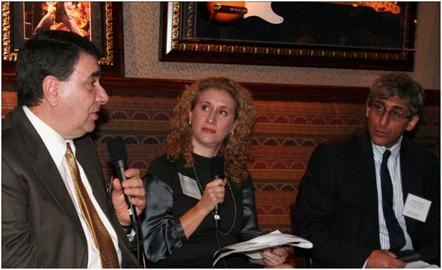Richelle Konian, member of the University at Albany Alumni Association Board of Directors and School of Business Dean’s Advisory Board, will serve as the Committee Chair of the Excellence Awards for 2014 after serving several years on the Awards Committee. Richelle also was a recipient of the Excellence Awards in 2008 and received the “Outstanding Young Alumni” award.
Learn more about the Excellence Awards and alumni accomplishments at http://www.albany.edu/alumni/excellence_awards.php







